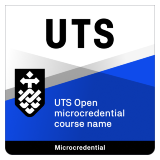The course consists of four online modules and a three-day field trip to Shoalhaven Zoo, a wildlife park in Nowra.
Online modules cover animal ethics, work health and safety when dealing with animals, wildlife first aid, and standard operating procedures for carrying out wildlife surveys, and handling and transporting wildlife. Pre-readings will be supplied to participants.
The field trip will give participants hands on experience working with wildlife. On the first afternoon, participants will work in small teams to design a fauna survey targeted at terrestrial mammals and reptiles. Each team will then deploy a series of traps (Elliott traps, funnel traps, pipe traps and cage traps) designed to capture arboreal and terrestrial vertebrates. In the evening, groups will carry out spotlighting to detect arboreal mammals.
On day two, each group will check their traps in the morning and will learn how to accurately record data, identify animals to species, and safely handle animals captured inside traps. Participants will have the opportunity to handle animals, identify them, and take standard measurements of mass, gender, and reproductive status. During this practical session, participants will discover the benefits and drawbacks associated with different trapping methods and handling techniques. In addition, participants will learn how to deliver basic first aid to wildlife, safely release dangerous animals that can be captured inside traps, and humanely treat and transport injured wildlife that might be encountered on worksites or during natural disasters (e.g. bushfires).
In the subsequent training exercises, participants will carry out a series of practical tasks which will help them to develop the skills needed to safely handle larger wildlife (wallabies, kangaroos, wombats, koalas) that are frequently encountered on work sites or after natural disasters. These sessions will run throughout the day, and will involve a series of talks, practical demonstrations and workshops. In the late afternoon, each group will reset their trapping lines. After dinner, participants will have the opportunity to survey frog ponds and identify frogs based on their calls and external features.
On day three, participants will check their trap lines early in the morning and will have the opportunity to practise the skills that they learned on day two. After breakfast, participants will carry out additional practical tasks to fine tune their skills in handling larger animals. After lunch, there will be practical demonstrations of how to safely remove and transport venomous snakes from a work site. Participants will then have the opportunity to use industry certified tools (hoop bags and snake sticks) to deal with snakes in a range of workplace situations.
The final session will involve a short practical quiz and skills test to ensure that participants have attained the level of competency necessary to work with wildlife in the workplace.
Course delivery
This course incorporates a range of teaching and learning strategies, including hands-on practical field work, live presentations, discussions, case studies and group activities. Online workshops are scheduled throughout the teaching period for participants to interact with instructors and peers, followed by a three-day group field trip to a wildlife park.


















